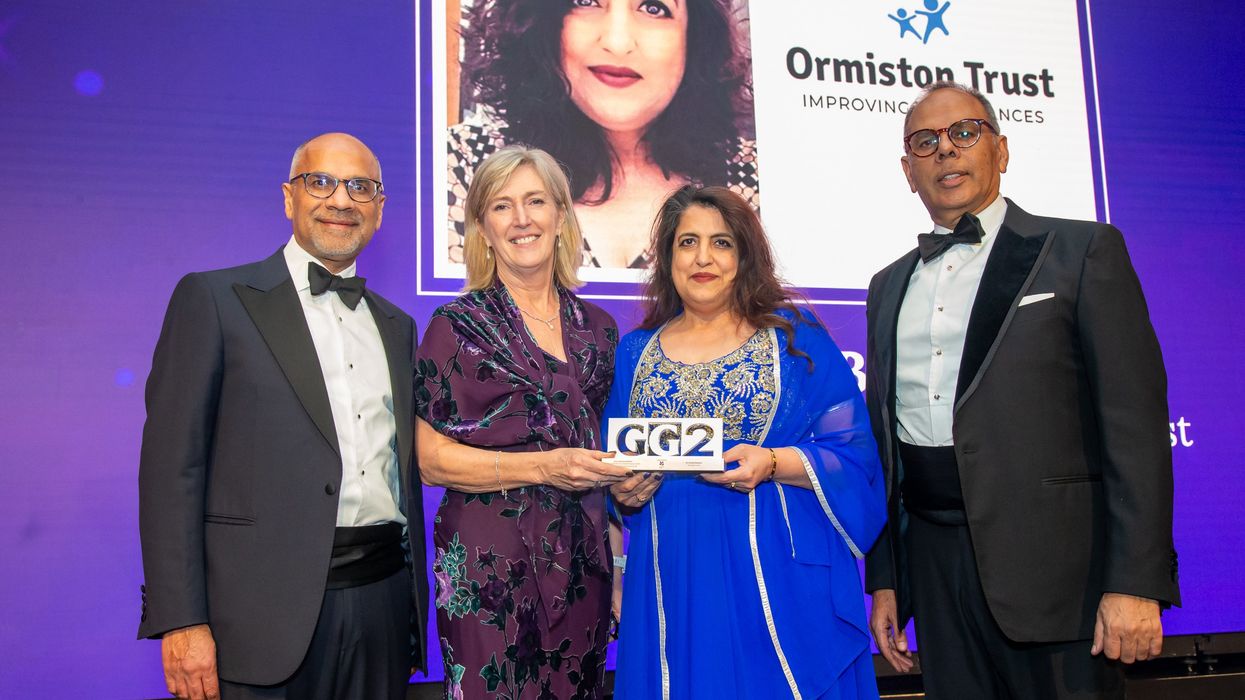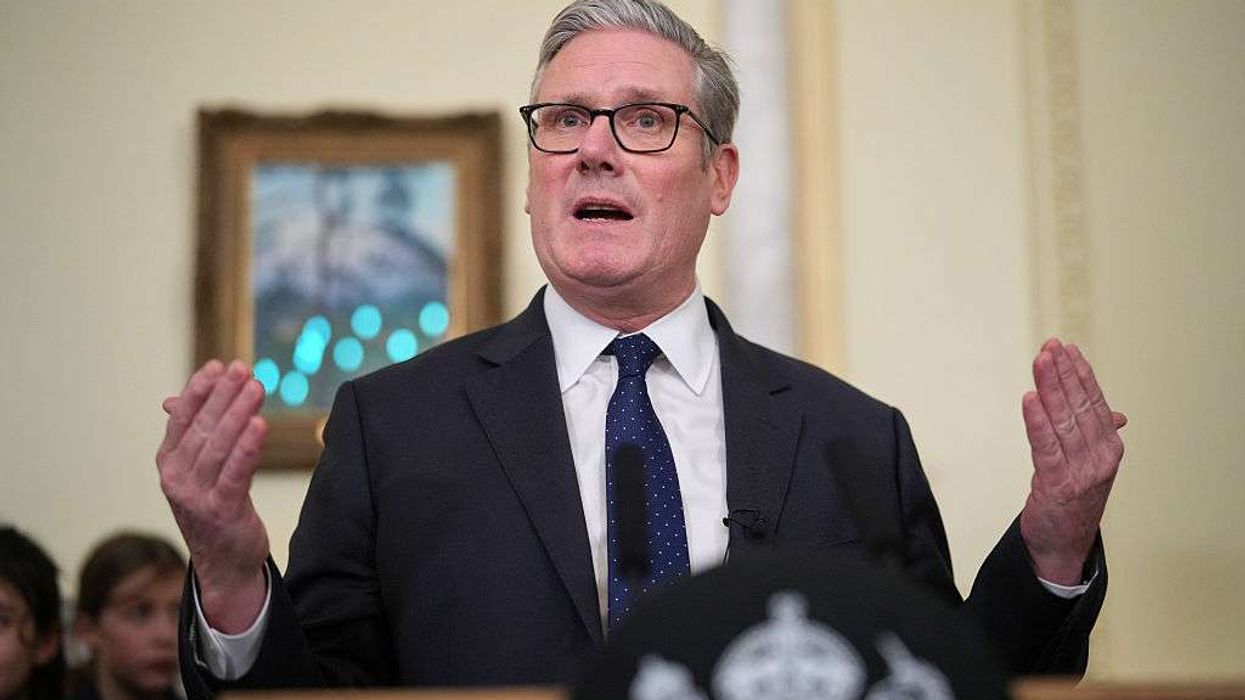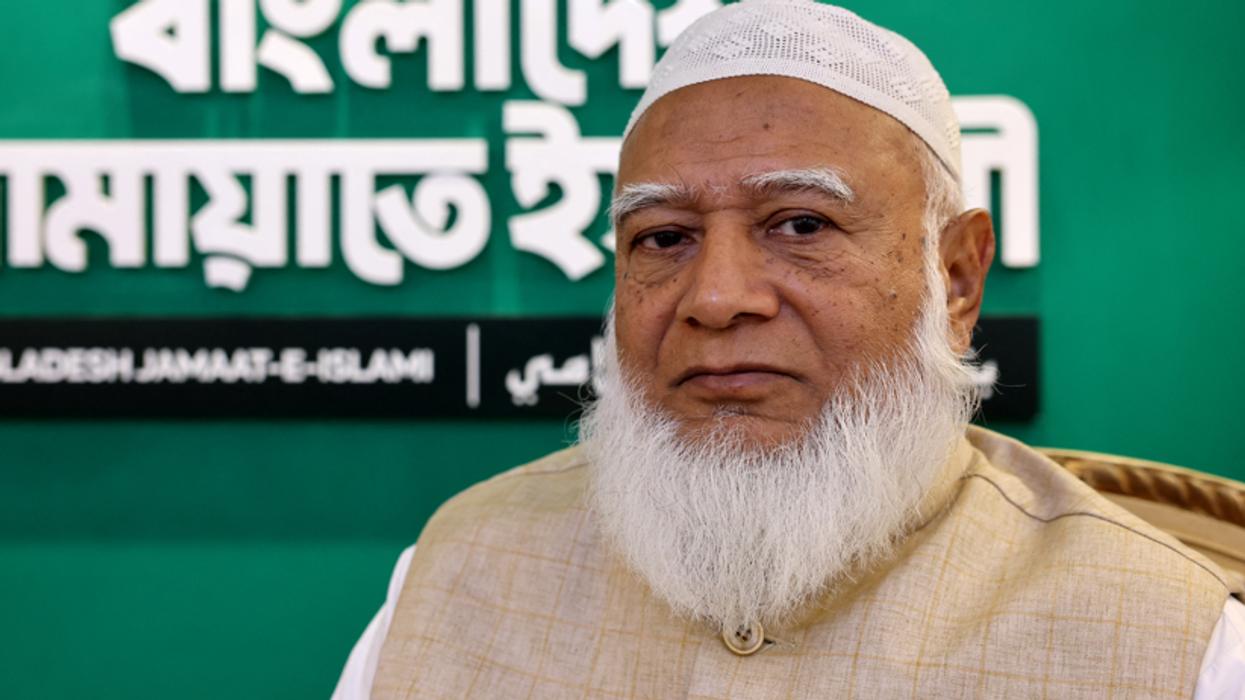DEVELOPING leadership and communication skills among young people is key to their future success and also has a tangible impact among communities that they live in, a senior executive at a prominent charity has said.
Dr Aneela Bukhari is the head of education at Ormiston Trust, a charity which has supported 50,000 young people from socially and economically disadvantaged backgrounds across the UK.
In March, Bukhari was honoured with the GG2 Embrace award at the GG2 Leadership and Diversity Awards, a recognition that celebrates individuals who have made significant contributions to diversity and inclusion in Britain.
In an interview with Eastern Eye, she described the trust’s ‘youth social action programme’, which enables young people to tackle poverty, engage with issues such as climate change, inclusion and diversity, and develop critical skills like communication and leadership.
“What it does is give them the citizenship, the skills, leadership, communication, confidence and resilience to look at what they could do to make a difference through projects or raising funds and raising awareness,” Bukhari said.
The trust’s efforts went beyond academic results. “If they have behaviour issues, going into enrichment activities actually has an impact on addressing their behaviour or helping them to self-regulate,” she said.
“Academically, they may not be strong, they get into trouble, but enrichment activities have really given them the reason to come into school.”
The GG2 Leadership and Diversity Awards are hosted by the Asian Media Group (AMG), which publishes Garavi Gujarat and Eastern Eye news weeklies.
At the annual event in London in March, Bukhari was among 20 winners from ethnic communities recognised for their work and achievements.
In the past two years, more than 12,000 young people have taken part in initiatives run by the Ormiston Trust, gaining a greater sense of agency, confidence, and wellbeing as a result.
Bukhari explained the trust’s work focuses on schools in disadvantaged locations. “They have about 50 schools across England. Near enough all of their schools are in disadvantaged locations. Most of the schools have a minimum of 15-20 per cent of FSM (free school meals) for young people, and SEND (special educational needs and disabilities) is quite high in many of the schools.”
She also highlighted the role of Ormiston Families, a related charity working with young mothers.
“They specifically help young mothers who have pregnancies as teenagers and then help them to break that cycle of teenage pregnancies and children going into social care.”
Born in south London in the 1970s, Bukhari grew up in what she described as a traditional family environment.
“My father migrated to the UK in the 1960s, set up his own business. I was raised in a very traditional family, so my father didn’t really push higher education, but it was a passion of mine,” she said.
Pursuing further studies was not the norm for young girls in her community at the time. “It wasn’t very common in those days for young Pakistani girls to pursue further education… I had to fight to gain that education,” she said.
After completing her undergraduate, postgraduate and doctoral degrees, Bukhari entered the education sector.
“I went into education just because it aligned with my children’s school, and I realised I did want to make a difference, because growing up I experienced – as most Asian kids in the 1970s did – the racism and having to work a lot harder to get where you wanted to do.”
She began by volunteering in schools and quickly saw the same challenges she had faced in her youth. That led her to pursue more senior roles in the field, including overseas.
Her career took her to the United Arab Emirates (UAE), where she worked with the Ministry of Education.
“I advised headteachers and principals and I would have a team of advisors. What I noticed was there wasn’t a lot of people of my background in those roles,” she said.
“Even in the UAE, they respected other representation like the western, you know, sort of typically white people being in those higher positions and roles.”
Bukhari was the only leadership advisor from a Pakistani background working with the ministry at that level. She later worked at a university in the UAE across 17 campuses, supporting the Bachelor of Education programme.
Looking to broaden her impact further, she then joined Pakistan’s largest privately owned school organisation as head of school improvement and professional development. “I had oversight for just under 200 schools across Pakistan and some of the international schools. I was in charge of the professional development of up to about 8,000 teachers,” she told Eastern Eye.
The school network served 320,000 students. Bukhari explained that she introduced systems and structures to ensure “teachers were trained and aligned to international standards, and schools were evaluated and benchmarked on international standards”.
After returning to the UK and completing her PhD, Bukhari was contacted by the Ormiston Trust to lead a new programme.
She said, “This trust was looking for somebody to lead a programme because they had just been awarded a grant of £1 million and they were match-funding that grant. So I had a £2m grant fund to implement youth social action across their network of schools but also external schools.
She added: “I had the oversight of different project managers across the different work streams, and I implemented the youth social action programme in 150 schools across England.”
The initiative has helped young people build skills to support them beyond school. Bukhari said: “Collaboration, teamwork, leadership skills, being able to communicate in a way that they get their voice heard – all of those skills are going to help them when they leave school as well.”
Inclusion and diversity must be genuine and embedded within an organisation, according to her.
“Tokenism is not something that’s going to empower an organisation. It’s got to be done on the merit of that person coming in and recognising that, rather than, ‘we’ve got to have our allocation of people from a specific minority’.”
Bukhari added, “Ormiston Trust do that really well recognising the talent, but also giving those people the opportunity to be representative of the trust itself.”
She pointed to the Ormiston Academies Trust’s network of 43 schools, particularly in diverse areas like Birmingham.
“When I go to their conferences, they are in very diverse communities… It’s represented in the type of people who come to these conferences and are part of the school network,” she said.
Bukhari said the trust was working on a five-year strategic plan. “It wants to reach those groups who are at a disadvantage, who are disengaged. It’s not just about academics, it’s trying to nurture other passions and interests these young people might have, which will help them in their future careers and their life really.”
She also encourages young people to apply to join the trust’s youth advisory council. “They look at the applications for the funding, they have a say in whether we should give funding to these particular applications, they have a say in the comms, they will write blogs for us, they will write articles for our newsletter,” Bukhari explained.
On her leadership style, she said, “I have very much more of a distributed leadership style but also collaborative. Everybody in our team has their strengths and their experiences they bring to the table, so I think it’s important to listen to the views and value the views of everybody.
“You can only grow when you have exposure to different people anyway and learn because it makes you more accommodating to the differences we all have.
“But there’s a lot of things that we all share in common too.”













